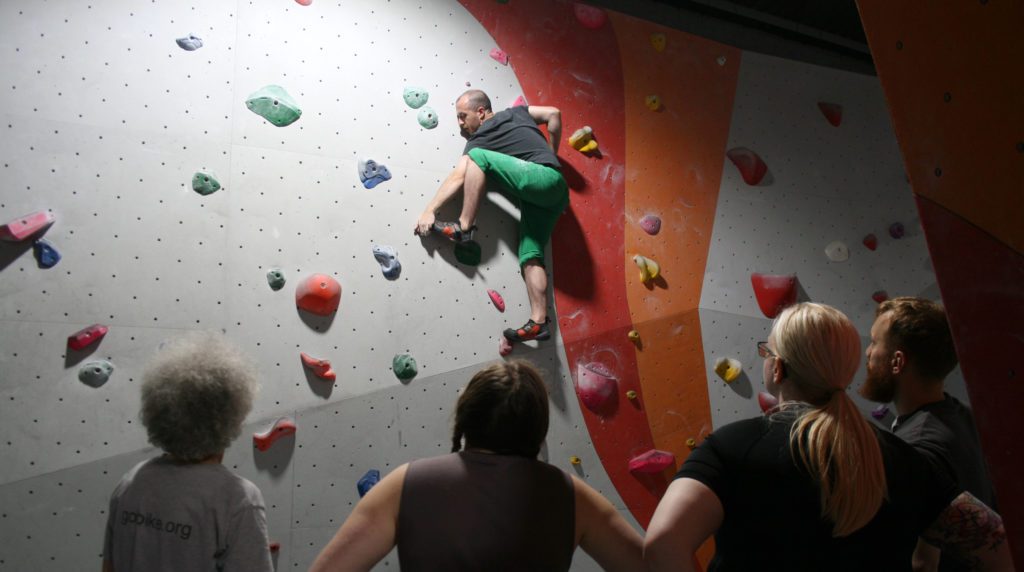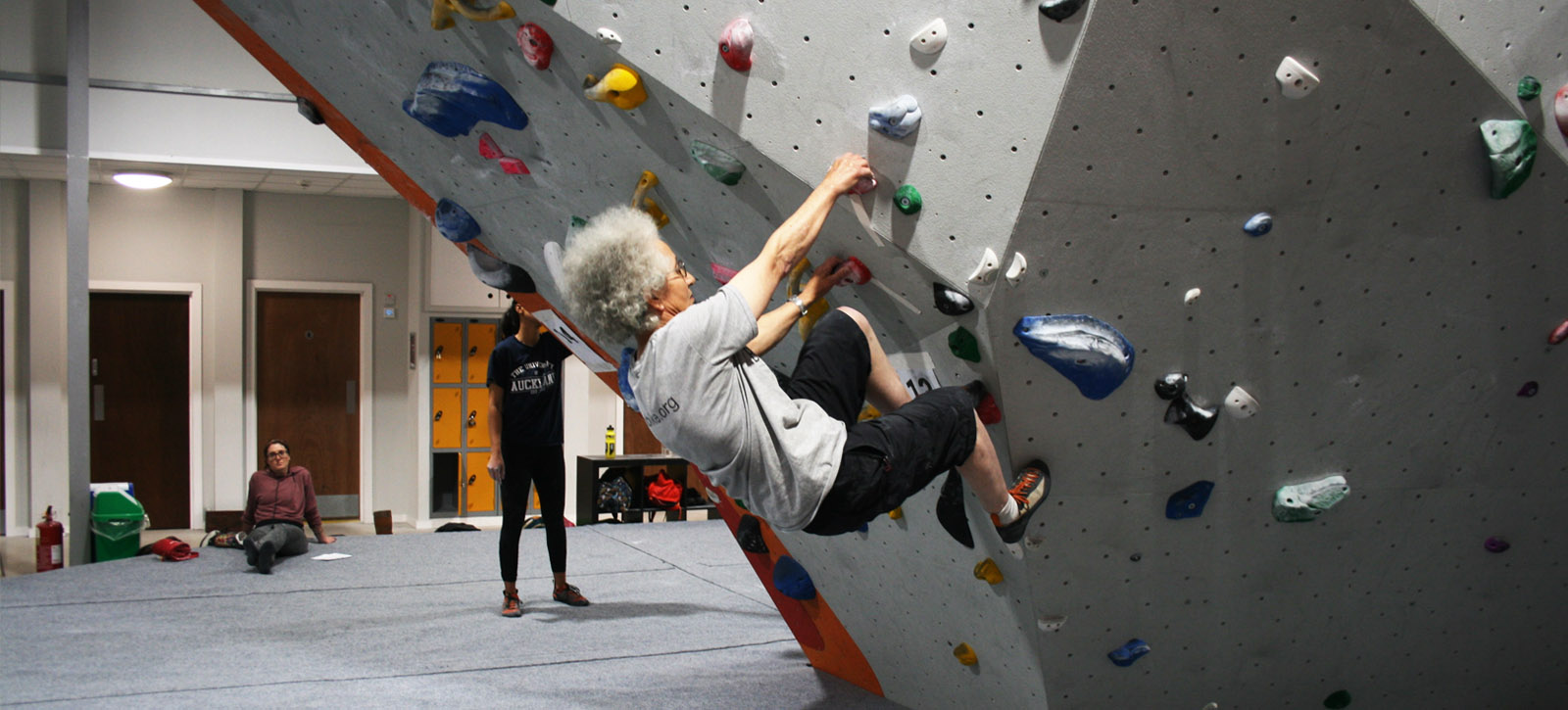16.09.19
Common Wheel – using climbing to improve lives
Judith Foster is a regular climber at TCA and is often seen in competitions. For those of us who climb, the sport often becomes a really significant part of our lives. The exercise, fun and weekly challenges help to bolster confidence and much-needed serotonin levels. Judith looked beyond the wall and saw the benefits that climbing could have for others who may need a little extra help in their lives. We caught up with her to find out more.
How long have you been climbing?
Indoors, regularly, since 2008.
How did you get into it?
I grew up in London where there were no opportunities to climb on rock, but I always enjoyed climbing trees. I was first introduced to rock climbing as a teenager while on holiday and then tried it again as a student, but the crags were too far away to take it up regularly.
After I moved to Glasgow I went hillwalking quite a lot, with a bit of scrambling and easy climbing.
One day in 2008 I was passing the auto-belay wall at Braehead and had a bit of spare time so went in and had a go. I’ve been climbing indoors regularly ever since, and occasionally outside as well.
What's your connection to the charity Common Wheel?
I’m a trustee, Treasurer, IT support, and now climbing co-ordinator.
Tell us a bit about Common Wheel.
Common Wheel is a Glasgow-based mental health charity, registered in 2001. We offer meaningful activities to adults with mental illness.
Our vision is that people with mental illness in Glasgow are able to live a meaningful and satisfying life and contribute to society.
Our mission is to improve mental wellbeing, increase skills and reduce isolation through the provision of supported, meaningful activities for people with mental illness and dementia.
Our current activities are bicycle maintenance, music, visual arts (making large-scale pieces which are displayed at public events) and now climbing! The bike project has two workshops, one in Maryhill (near The Prop Store) and the other in Bridgeton. We offer a Build Your Own Bike course. Each participant is given a donated bike, and guided through the process of stripping it down and rebuilding it – then they can keep it and use it. A few people stay on as long-term volunteers and use their skills doing repairs for the general public, which generates income for the project.
The main office is at Campbell House on the Garnavel Royal Hospital campus, in a building very kindly loaned to us by the NHS. The music and art groups are based there and provide sessions for patients and recovering patients living in the community. The music project also provides sessions for hospital inpatients and care-home residents and sessions for young adults in a different location.
The climbing project is brand new. We are part-way through the first 12-week course – which is acting as a pilot – with the aim of repeating it and establishing a long-term group, subject to funding being available.
All our participants are referred by their mental health support workers. They have long-term mental health problems, are almost all unemployed, and for many of them we provide their only activity.
Our activities are funded by grants and donations, a contract with the NHS, and some income from the bike workshops; the great thing is that the participants do not have to pay.

Judith with competitors – at the recent Prop Store Party.
From your own experience, what is it about climbing that you enjoy?
It’s a way to get fit and keep fit by doing something interesting, challenging, and fun. When you are climbing you have to focus, so it completely takes your mind off everything else. There is also a bit of scariness which gets the adrenaline and endorphins going, so you feel good.
It’s sociable and climbers are generally friendly and helpful. There is very little elitism; the experienced high-grade climbers encourage beginners and vice versa. Indoors it doesn’t matter if your partner is as able as you are, because you don’t have to do the same routes.
Since the group have started to come to TCA, what do you think they are getting from climbing?
There are a number of scientific papers showing that climbing improves mental health and we’ve all heard positive anecdotes. In addition to the things I listed above, it gets people out of the house, which in itself can be a challenge.
Climbing helps with a host of things including socialising, confidence, self-esteem, motivation, learning new skills, following instructions, team-work, communication and even timekeeping. Our aim is that by the end of the course our participants will be able to climb independently so that they can continue with the activity. We also signpost people to other activities that they may enjoy.
Can readers of the TCA Life help to support Common Wheel?
For the climbing project, in the future, I hope to recruit one or two volunteers. This would help us support our participants so that they can continue to climb together after the end of the current course.
Our bike workshops can repair your bike, sell you a customised recycled bike, and supply a variety of new and recycled parts. This generates income which helps to support the project. It’s advisable to phone or email before you go. Visit our website for contact details, opening times etc.
We accept and appreciate donations of unwanted bikes, parts, and accessories, some types of musical instrument, and of course money.



